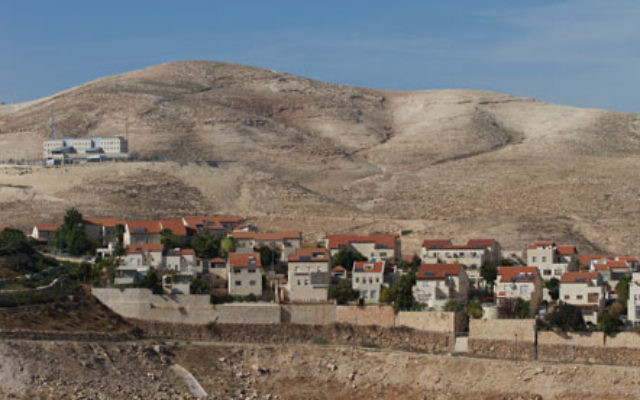Israel slammed over settlement plans
In what appears to be punishment for the successful Palestinian statehood bid, Israel has approved extensive building in East Jerusalem and the West Bank.
Shortly after the United Nations recognised “Palestine” as a non-member state Israel gave the green light for 3,000 units — though it is unclear exactly where they will be built.
It also resolved to promote a plan for the development of E1, a 12 square kilometre piece of land just east of Jerusalem — and one of the most contentious plots in the West Bank.
Prime Minister Benjamin Netanyahu linked the plan to the statehood bid, borrowing words from former Prime Minister Yitzhak Rabin reacting to a 1975 UN resolution that equated Zionism to racism. “The response to the attack on Zionism and the State of Israel must reinforce and underscore the implementation of the settlement plan in all areas in which the government decides regarding settlement,” he said.
There was jubilation among pro-settlement politicians. “We should be able to build in every place that is part of the Land of Israel and it’s in our interest to do so,” Science and Technology Minister Daniel Hershkowitz, who represents the religious-Zionist Jewish Home party, said in an interview with The AJN, denying that the plan was provocative.
Netayahu’s Finance Minister Yuval Steinitz announced on Sunday that he would refuse to give the Palestinian Authority (PA) 450 million shekels ($113) in tax revenues that Israel has, in accordance with longstanding arrangements, collected on its behalf. “We warned that we would respond,” he said with reference to the UN bid. “I do not plan to transfer funds this month. I will subtract the sum from their debts.”
Steinitz reasoned that the bid was “a Palestinian provocation, an effort to advance the establishment of a state without recognizing Israel, without demilitarising and without proper security arrangements.”
But despite the PA’s financial crisis which means that the withheld revenues will leave a heavy dint in Ramallah’s coffers, it is the building plans that have attracted the most criticism. US Secretary of State Hillary Clinton criticised both the PA for its bid, which she called a “step in the wrong direction,” and Israel for the building plans, which, she said, “set back the cause of a negotiated peace.” UN Secretary General Ban Ki-moon said that the plans “represent an almost fatal blow to remaining chances of securing a two-state solution.” And several European states summoned their envoys to and sent stern messages to Jerusalem.
Hagit Ofran, the head of Peace Now’s programme for monitoring settlements told The AJN that her group considers the moves a “disservice to Israel” because they make a two-state solution more difficult to attain and because they give the international community the impression that Israel does not want peace.
E1 lies between Jerusalem and the settlement of Maale Adumim. Palestinians and the Israeli left say that it is the sole remaining corridor connecting East Jerusalem, which they foresee as the capital of a Palestinian state with the rest of those West Bank Palestinian villages and towns. They say that if Israel builds on it rendering it unavailable for Palestinian transport links, the two-state solution could become unviable.
Ofran claimed that building there would prove “devastating to the two-state solution.” She said: “If it’s built on a viable Palestinian state isn’t possible because it’s cut the Palestinian state in to a northern part and a southern part.”
Some on the Israeli right accept this analysis — and say it is exactly why they want to see homes on E1. Susie Dym, spokeswoman for the pro-settler Mattot Arim organisation commented to The AJN: “If this housing impairs the plans to set up a new terrorist state a bike-ride away from Jerusalem and Israel’s sole international airport, that is an excellent reason to approve the housing immediately.”
But Ofran insisted that Israel’s move is unwise. “Israel is not punishing the Palestinians, it’s punishing itself because the two-state solution is part of its policy,” she said.
Tzipi Livni, former Kadima head who is running for Knesset with her new The Movement party, said: “The UN decision on a Palestinian state was bad for Israel and so was Netanyahu’s response.” Former Israeli Prime Minister Ehud Olmert called the E1 decision a “slap in the face” of US President Barack Obama.
NATHAN JEFFAY
read more:


comments